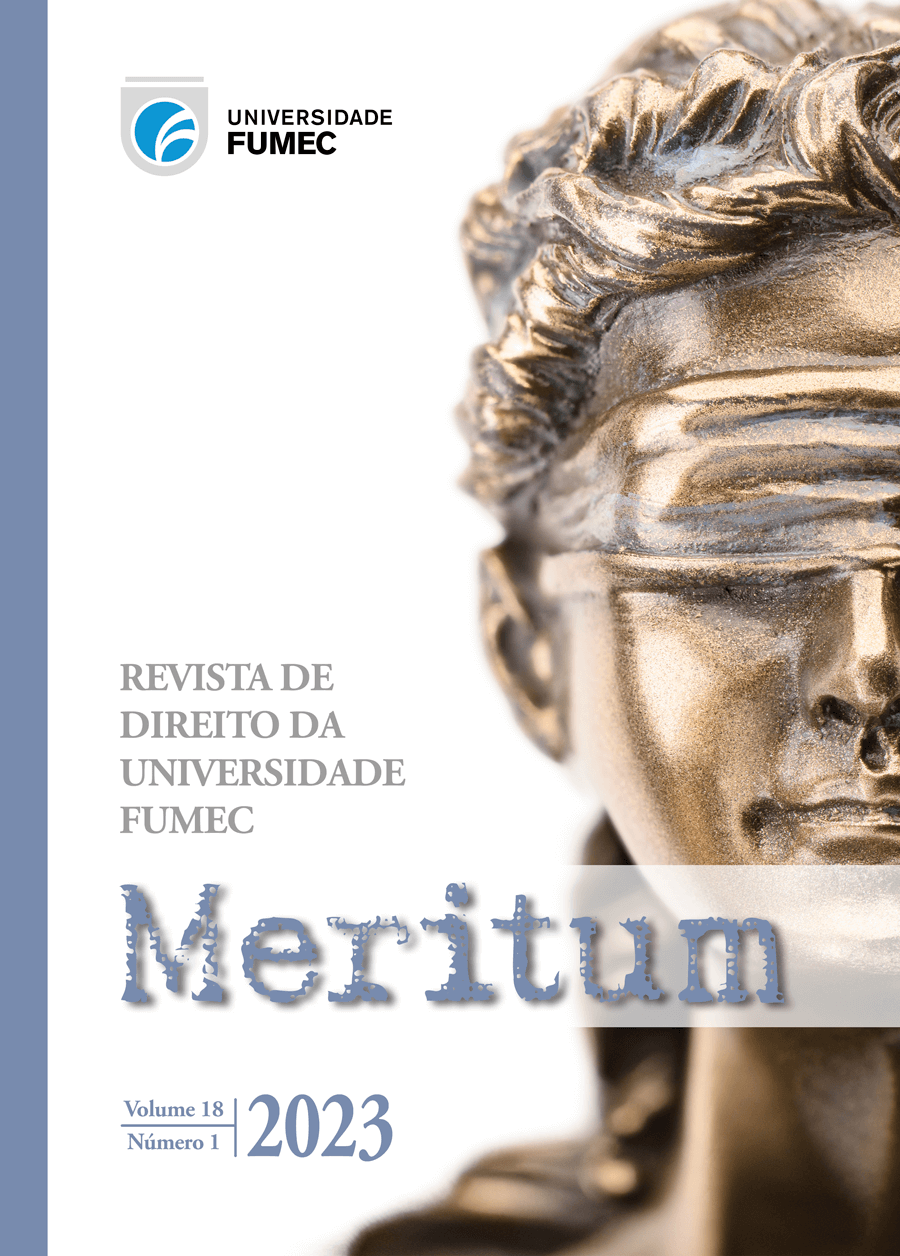THE CONSTRUCTION OF TRANS SUBJECTIVITIES AND THE LAW
REFLECTIONS ON THE POSSIBILITY OF A "FUNDAMENTAL RIGHT TO HORMONIZATION"
DOI:
https://doi.org/10.46560/meritum.v18i1.8980Abstract
This study focuses on an investigation into the possibilities of claiming a “fundamental right to hormonization” for trans people. It starts with the criticisms made to the health care model offered by the Brazilian State to this population, mainly due to its pathologizing and excluding character. Hypothetically, it stipulates that it is possible, in the current Brazilian legal scenario, to postulate a fundamental right to hormones for trans people. The general objective is to analyze the meanings of “fundamental rights” combined with the needs experienced by these people for the construction of their identities. The specific objectives are: (1) to develop a genealogy of the transsexuality device in the scientific field by questioning the discursive limits of its apprehension as a disorder; (2) understand the forms of subjectivation of trans people and the paths they follow for the construction of their corporeal and legal identities; and (3) investigate the construction of fundamental rights guaranteed to trans people in order to observe the possibility of expanding the borders of legal discourse so that they also encompass their bodies. The methodology started from a qualitative approach, with bibliographical and documental reviews. As final results, the positive obligations arising from the objective dimension of fundamental rights were highlighted, which, combined with the notion of human dignity and the importance of bodily interventions for the multiple constructions of trans bodies, make it possible to speak of a fundamental right to hormoneization.
Downloads
Published
Issue
Section
License
Autores que publicam nesta revista concordam com os seguintes termos:
- Autores mantém os direitos autorais e concedem à revista o direito de primeira publicação, com o trabalho simultaneamente licenciado sob a Licença Creative Commons Attribution que permite o compartilhamento do trabalho com reconhecimento da autoria e publicação inicial nesta revista;
- Autores têm autorização para assumir contratos adicionais separadamente, para distribuição não-exclusiva da versão do trabalho publicada nesta revista (ex.: publicar em repositório institucional ou como capítulo de livro), com reconhecimento de autoria e publicação inicial nesta revista;
- Autores têm permissão e são estimulados a publicar e distribuir seu trabalho online (ex.: em repositórios institucionais ou na sua página pessoal) a qualquer ponto antes ou durante o processo editorial, já que isso pode gerar alterações produtivas, bem como aumentar o impacto e a citação do trabalho publicado (Veja O Efeito do Acesso Livre).






